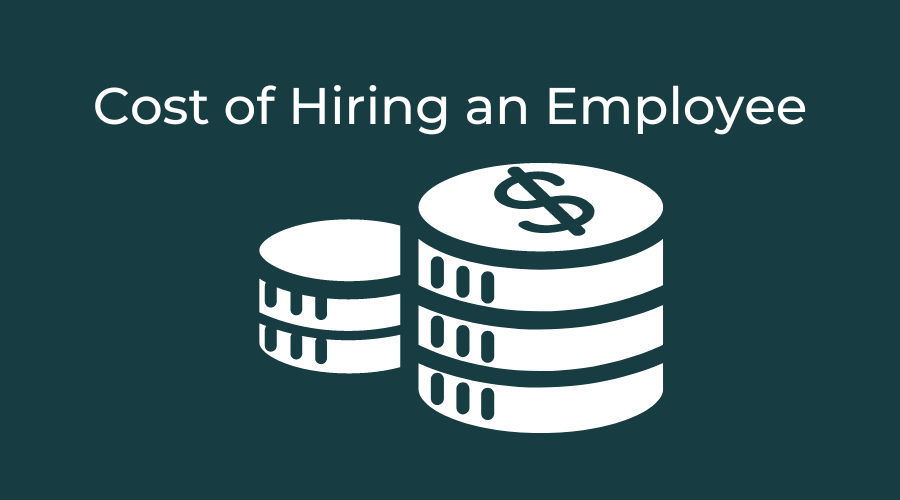Bringing new employees into your company can be an exciting experience, but it’s important to be aware of the costs associated with hiring. These costs can include both financial expenses and the time investment required to onboard and train new hires.
It’s essential to understand what hiring expenses are and to have an idea of the amount that the most common expenses may cost your business. This will help you be prepared to absorb these costs and make informed decisions about your hiring process.
There are many factors that can affect the cost of hiring an employee. Some of the most common include:
- Salary and benefits: The main cost of hiring an employee is typically their salary and benefits package. This can include things like their base pay, bonuses, insurance, and retirement contributions.
- Recruiting and hiring: It can also be costly to find and hire new employees. This can include the cost of job postings, recruiter fees, and any other expenses associated with the hiring process.
- Training and onboarding: Once an employee is hired, there may be additional costs associated with training and onboarding them. This can include the cost of training materials, time spent training, and any travel or other expenses incurred during the onboarding process.
- Taxes and compliance: Employers are also responsible for paying various taxes and complying with various regulations, which can add to the cost of hiring an employee.
- Equipment and supplies: Depending on the nature of the job, there may be additional costs associated with providing the necessary equipment and supplies for an employee to do their job effectively.
The most common expenses associated with recruiting new employees can include:
- Job postings: Many companies use job boards or other online platforms to advertise open positions, which can be a significant expense. A job posting can cost upwards of $400 in the U.S. job market.
- Recruiter fees: If you use a recruiter to help you find and hire new employees, you will likely need to pay a fee for their services.
- Travel: If you need to bring candidates in for interviews or other recruitment-related activities, you may incur travel expenses such as airfare, hotels, and meals.
- Advertising: You may also need to pay for advertising to promote your open positions and attract candidates. This can include things like print ads, radio or television commercials, or online ads.
- Candidate sourcing: Some companies use specialized software or services to help them identify and reach out to potential candidates. These tools can be expensive.
- Background checks: some jobs require a background check that can cost up to $100.
- Referral bonuses: if you reward employees for referring candidates you may have to pay them a bonus of $500 to $1,000.
- Onboarding: depending on the role your new employee will need to be onboarded before they can begin their job on their own thus costing you money for getting them up to speed.
- Training: some sources peg the average cost of training a new employees at around $1,300.
When bringing a new employee into your company, there are both visible and hidden costs to consider. These hiring expenses can include things like recruitment fees, travel costs for candidates to attend interviews, and relocation expenses. It’s important to be prepared for these costs, but there are also less tangible expenses to consider, such as a temporary decrease in productivity as the new hire adjusts to their role and the time investment from current employees as they participate in the hiring and onboarding process.
These costs can add up and impact the overall efficiency and productivity of the business. It’s important to be aware of and budget for these expenses to ensure a smooth and successful hiring process.
The cost of hiring a new employee can vary greatly, but it’s generally estimated to be between $4,000 and $20,000, (source: indeed) not including the salary and benefits of the new hire. It’s important to be aware of these costs and to budget for them when planning to bring on a new team member. Given the expense involved, it’s crucial to take the time to carefully assess the fit of a candidate for both the role and your company during the hiring process. It’s also important to be aware of the specific expenses involved in hiring for your business so that you can be prepared to cover them.


